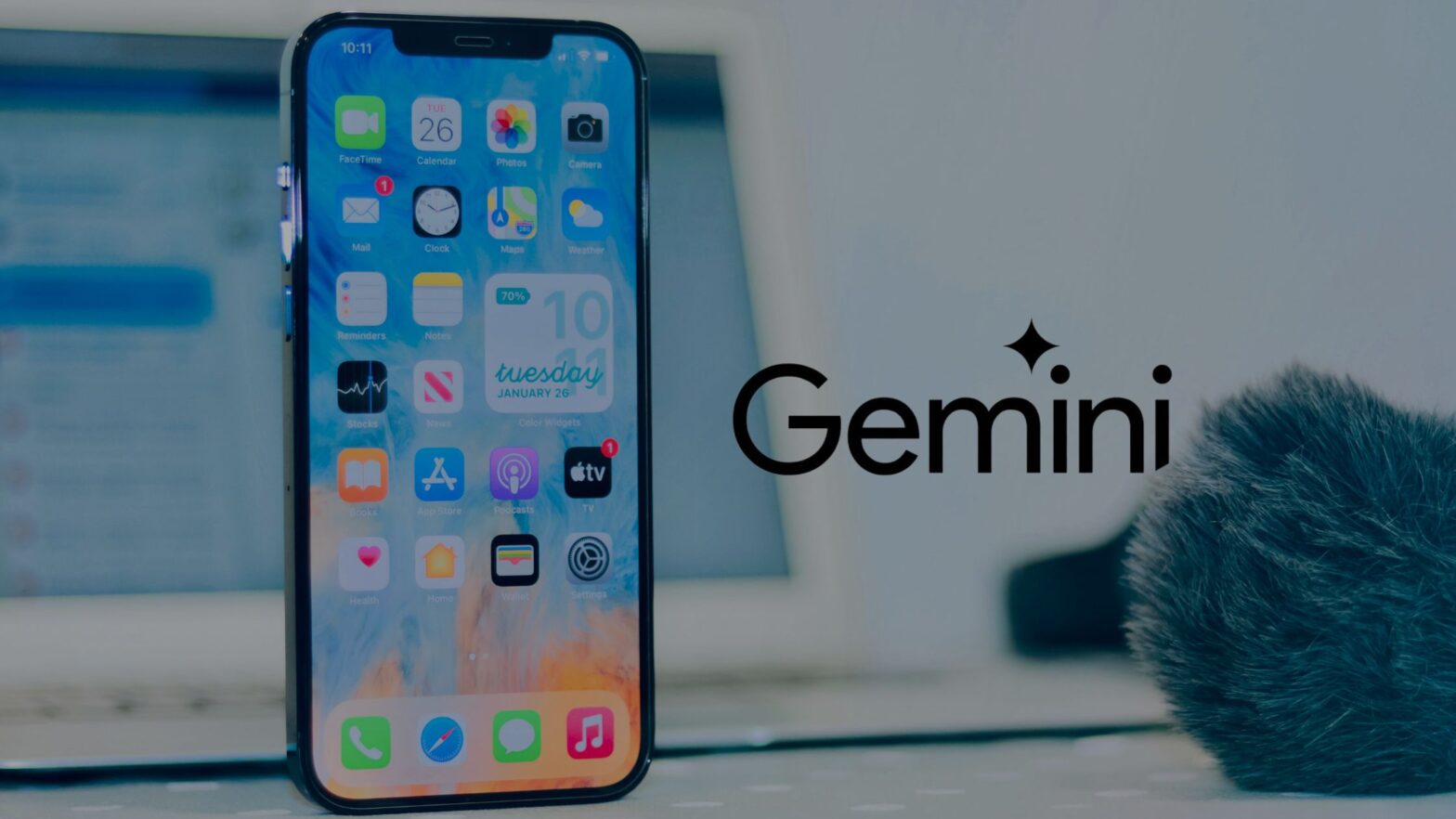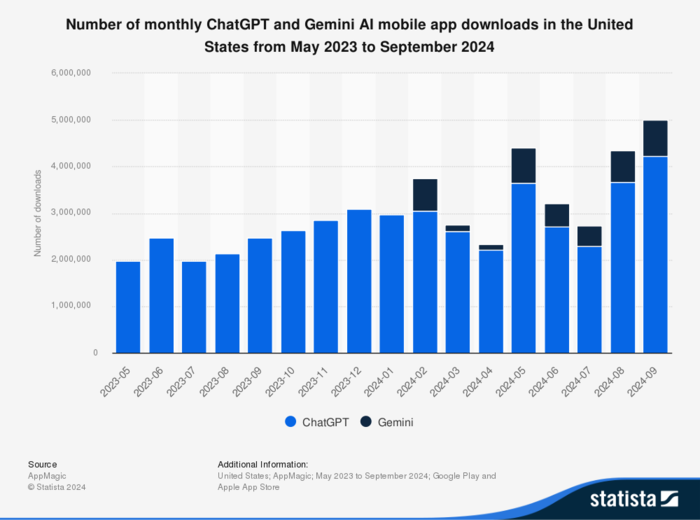Google launches Gemini for iPhone: a bold move in artificial Iintelligence
November 18, 2024

Google has taken a bold step in the tech race by launching Gemini, its much-anticipated artificial intelligence tool, directly for iPhone users. This move not only marks Google’s official entry into the competitive space of generative AI on mobile devices but also positions the company as a key player in a market dominated by giants like Apple, OpenAI, and Microsoft.
The decision to make Gemini available first on iOS is a strategic statement. By targeting Apple’s vast user base, Google aims to solidify its presence in mobile AI, bridging the gap between ecosystems and showcasing its ability to combine innovation with accessibility.
What does Gemini offer?
Gemini is not just another AI tool—it’s Google’s vision for making generative artificial intelligence accessible to everyone. Designed to handle complex tasks intuitively, the app blends text generation, visual content creation, and personalized assistance, delivering an optimized experience tailored for iPhone users.
What sets it apart is its focus on natural language processing, enabling smooth, practical interactions. Importantly, Gemini is fully available in Spanish from day one, positioning it as an accessible solution for millions of Spanish-speaking users—a competitive edge where many rivals are still catching up.
The strategy behind the launch
Launching Gemini within Apple’s ecosystem redefines the rules of engagement. Traditionally, Google’s flagship services debut on Android, its native platform. However, this move signals a shift, highlighting Google’s intent to make Gemini a universal, adaptable tool.
This decision also places Google in direct competition with Apple, which has so far taken a more understated approach to AI, and OpenAI, whose models like ChatGPT have gained traction across platforms. With Gemini, Google isn’t just competing—it’s carving a path to becoming a leader in mobile AI.
The race to dominate mobile AI
The launch of Gemini adds another chapter to the fierce battle for generative AI supremacy, a space where players like OpenAI and Microsoft have already made significant strides. However, Google has an advantage: its deep expertise in machine learning and its ability to integrate this technology with widely used tools like Google Workspace.
With Gemini, Google aims to surpass traditional virtual assistants like Siri or Alexa by offering features that truly enhance users’ productivity and creativity in their daily lives.

What does this mean for users?
The arrival of Gemini on iPhone puts the power of generative AI in the hands of millions. From crafting text to generating visual ideas and solving complex problems, this tool promises a practical, personalized experience.
Its availability in Spanish from the outset further broadens its appeal, particularly in markets where language barriers have limited access to other AI technologies. Combined with Google’s technological strength, Gemini ensures a seamless experience that could redefine how we use our smartphones.
Conclusion: Google’s big bet
The launch of Gemini on iPhone is more than just a new tool—it’s a strategic move that strengthens Google’s position in a market where artificial intelligence is shaping the future.
By choosing Apple’s ecosystem as its initial launchpad, Google demonstrates its ambition to reach a broader audience and lead the digital transformation defining this decade.
With Gemini, the competition in mobile AI heats up, and the biggest winner is the user.




